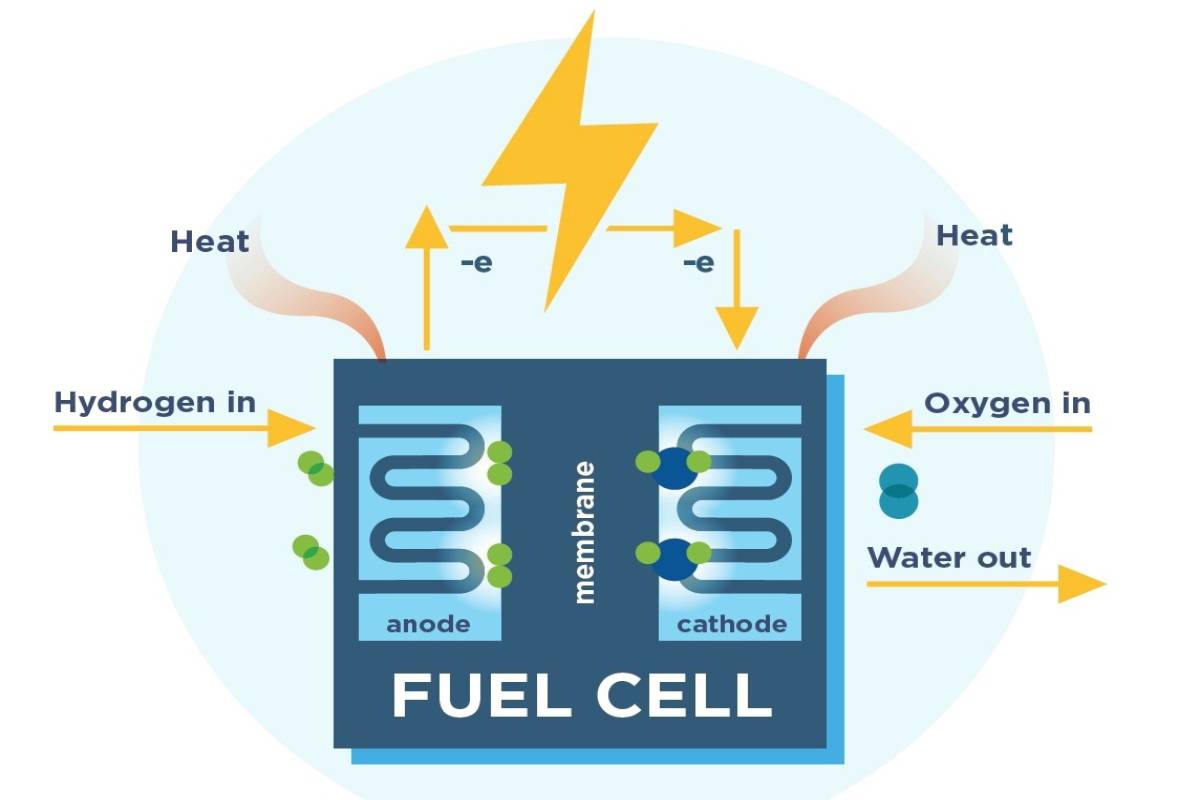The United Nation has recently agreed on the key issue the world needs to tackle by 2030. The progress towards 17 sustainable development goals will help to lift people out of poverty, create equality between groups, and enable a sustainable future. A huge problem currently being faced is climate change. If we keep producing and consuming according to current trends, we will continue to emit harmful greenhouse gases that will keep heating up the earth and lead to extreme weather events like melting of polar caps. To tackle climate change, fuel cell technology is a good option.
A Fuel cell is an electrochemical device that converts the chemical energy of a fuel directly and very efficiently into electricity and heat thus doing away with combustion.
The most suitable fuel for such a cell is hydrogen or a mixture of compounds containing hydrogen fuel cell and an electrolyte, sandwiched between two electrodes. Oxygen passes over one electrode and hydrogen over the other and they react electrochemically to generate electricity, water, and heat.
Fuel cells for automobile transport
In contrast to vehicles powered by the internal combustion engine, fuel cell powered vehicles have very high energy conversion efficiency and near zero CO2 emission, and water vapours being the only emissions. Fuel cell powered electric vehicles score over battery operated electric vehicles in terms of increased efficiency and faster refuelling.
In India, diesel-run buses are a major public transport and these emit sufficient quantities of SPM and CO2. Fuel cell powered buses and electric vehicles could be introduced with relative ease which can reduce air pollution drastically.
Recently, Elon Musk and Tesla revealed a new hydrogen fuel cell engine for electric cars. This hydrogen cell engine will be the most powerful car engine in the world. Hydrogen fuel cells are a better solution for sustainability.
These hydrogen fuel cars will be more expensive to acquire, mainly due to the rarity of the car hydrogen stations.
Fuel cells for power generation
Conventional large scale power plants use non-renewable fuels with sufficient adverse economic and environmental impact. Fuel cell systems are excellent candidates for small-scale decentralised power generation.
Fuel cells can supply combined heat and power to commercial buildings, hospitals, airports and military installations at remote locations. Fuel cells have efficiency up to 55% as compared to 35% of conventional power plants. The emission levels are sufficiently low CO2 and water vapour being the only emission. Fuel cell systems can be added whenever required with relative ease and can be set up wherever power is required.
Advertisement









